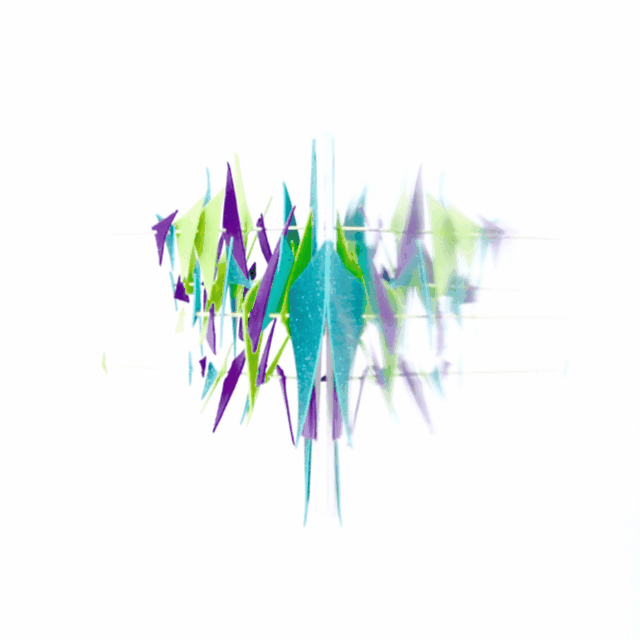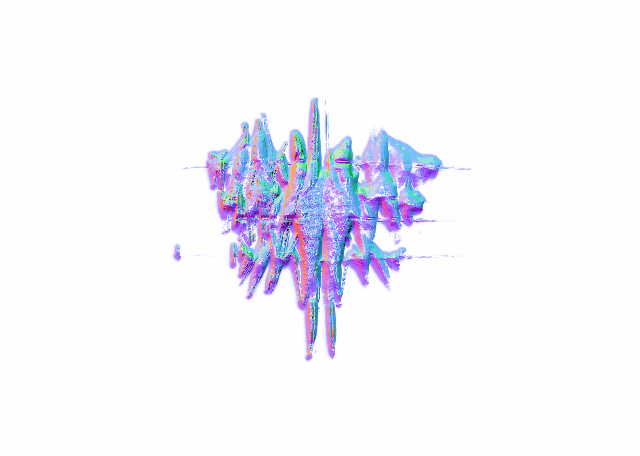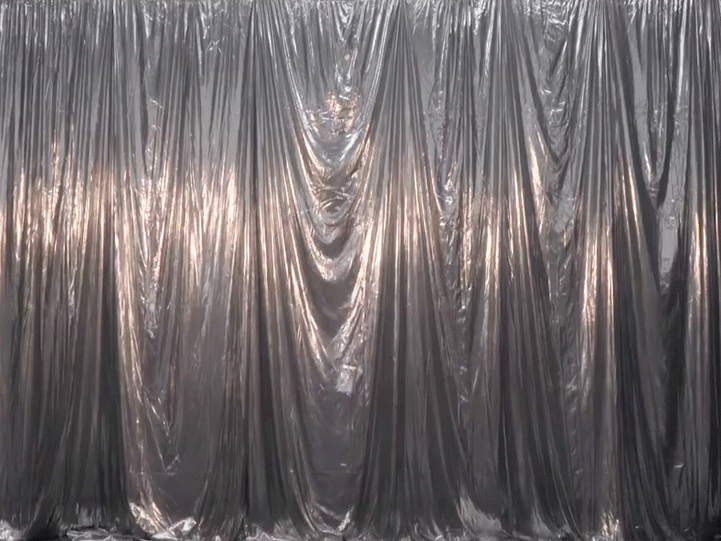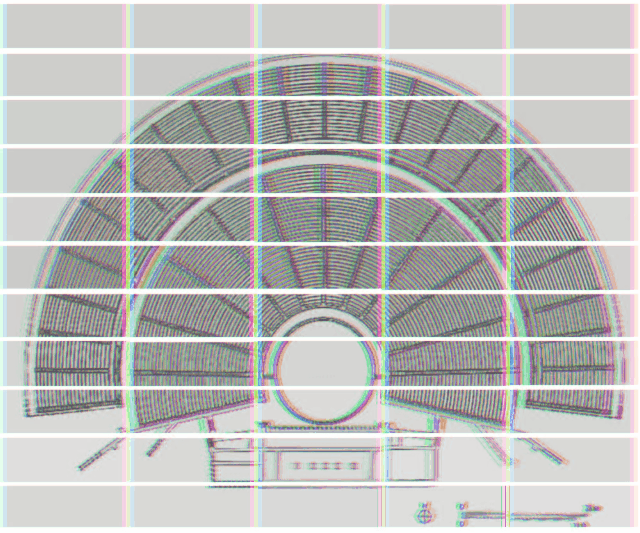At the midterm point of the doctoral project, Vincent Roumagnac invites the architect, researcher, and curator Emmanuelle Chiappone-Piriou to establish a research platform on the future of the relationships between theatre and architecture, as part of his doctorate on scenic thinking and time ecology.
The purpose of the two-year collaborative research process is to design and display architectural prototypes of the "stage of the future". This project is developed from the speculative study of the necessary transformations of Western scenic thinking, and its production of imaginaries, in response to contemporary planetary issues in terms of climate and technological mutations.
The research project is simultaneously implemented in the fields of academic artistic research and transdisciplinary experimentation in contemporary art. Its purpose is to cultivate potentials, to design imaginaries and to produce aesthetic prototypes by crossing various fields such as performing and visual arts, architecture, artistic research, new media, contemporary philosophy, ecodramaturgy, and future studies, among others.
In the context of the current planetary ecological upheaval, the research group sets itself the task of speculating on new horizons/plateaus for the experimental exploration of the stage and architecture to come.
The research is methodologically projected via a performative prologue in the context of the 57th Venice Biennale (Research Pavilion) and five collaborative sessions: during the following autumn in Japan, then during the following year in France, Finland, Catalonia-Spain and South Korea.
On the occasion of the collaborative sessions Roumagnac and Chiappone-Piriou, together with local artists and architects, begin the design and production, and the critical discussion, of what they call “prototypes of the stage of the future”.
The main interest and goal of the hosts are to orientate the research project into an emergence of alternative common imaginaries. Making alliances and exchanging with other artists and architects in different European and Asian cities, they set up an ephemeral, fragile and joyous factory for assembling prototypes that would (re)compose the bio- and techno- invisible ecologies “we” are already part of.
Finally, all the 161 prototypes created during the five sessions are gathered and re-assembled under the title weS.A.N.K. Deep Stage As for a public show in an anti-atomic bomb shelter in Helsinki. On this occasion, weS.A.N.K. hosts and guests invite the spectators to enter a quantity of scenic/scenographic "potentials", proposing to poetically and ethically sense diverse ways of inhabiting the world through resetting the notion and, therefore, the experience of the stage.
This public presentation of the research project takes the twofold form of an installation/exhibition/mise en scène and of an exposition of the project on the Research Catalogue (RC). This double staging of weS.A.N.K. project is examined as the second and final artistic part of Roumagnac’s doctorate Deepening the Stage.
weS.A.N.K. Events & Sessions
weS.A.N.K. Venice[Prologue/Considerings] at Research Pavilion, in the context of the 57th Venice Biennale
weS.A.N.K. Tokyo at Tokyo Arts and Space
weS.A.N.K. Paris at Mains d’Oeuvres Saint-Ouen
weS.A.N.K. Helsinki at Performing Arts Lab (Etlab)
weS.A.N.K. Barcelona at Institut del Teatre
weS.A.N.K. Daegu at PSi#24 Conference / Daegu Art Factory
weS.A.N.K. Deep Stage As... at Vapaan Taiteen Tila / Helsinki
weS.A.N.K. Hosts
Vincent Roumagnac
Emmanuelle Chiappone-Piriou
Trained as an architect and historian of architecture, Emmanuelle Chiappone-Piriou is an author and independent curator. She investigates the frictions between architecture, art and computation, and how these produce our political and aesthetical contemporary landscape; she does so through collective and monographic shows, collaborative research projects, and through writing. A member of the CIVA scientific council (Kanal Pompidou, Brussels), Emmanuelle has collaborated on numerous exhibitions and publications, first at the Centre Pompidou (2009-10) then at OMA/AMO (2011). From 2011 to 2016, she was Program Curator of the Frac Centre. She is currently a Ph.D. candidate and an external lecturer at the TU Wien, and a lecturer at the Paris Malaquais school of architecture.
weS.A.N.K. Guests
Simo Kellokumpu, Josselin Vamour, Yusuke Kamata, Guillaume Aubry, Carolina E. Santo, Anne-Valérie Gasc, Emmanuel Guez, Laura Gozlan, Icinori, Sébastien Martinez Barat & Benjamin Lafore, Aurélie Pétrel, Florian Sumi, Aurélien Vernant, Outi Condit, Henna-Riikka Halonen, Edvine Larssen, Maiju Loukola, Tuomo Rainio, Aida Salán Sierra, Begüm Erciyas, Lys Villalba, Cris Argüelles, Edouard Cabay, Mireia c. Saladrigues, Marc Salicrú Julià, Ignacio De Antonio, Rumen Rachev and Woojin Kim.
Click on the blue titles at the top of the page to open the different stages of the project.




